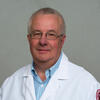Research Interests
Steven N. Popoff, Ph.D., Professor and Chairperson of the Department of Anatomy and Cell Biology, is a bone cell biologist with training and experience in cellular and molecular approaches as they are applied to the study of mineralized tissues. His research focuses on the regulation of skeletal development and the pathogenesis of various metabolic bone diseases including congenital osteopetrosis, inflammation-mediated osteopenia (i.e., rheumatoid arthritis, osteoarthritis and periodontal disease) and estrogen-deficient osteoporosis. This area of research is important because bone diseases are a major cause of mortality and morbidity in the United States and throughout the world. The need for increased research efforts in bone disorders has been designated as a high priority by many health-care and research organizations including the National Institutes of Health. The incidence of osteoporosis, with the estrogen-deficient post-menopausal form being the most prevalent, has increased dramatically as life expectancy continues to increase. The various forms of osteoporosis have been implicated in more than 1.5 million fractures per year in the United States alone, with estimated health care costs of $7 to $10 billion annually. Bone loss (osteopenia) is also a common occurrence in association with chronic inflammatory disease states, such as rheumatoid arthritis, osteoarthritis and periodontal disease. Diseases affecting skeletal development, such as osteogenesis imperfecta and osteopetrosis, account for a significant portion of birth defects and childhood disorders. Dr. Popoff’s laboratory utilizes various animal models of congenital or induced bone diseases that influence the development or maintenance of skeletal tissues. Recently, his laboratory identified a novel regulator of osteoclast function that is believed to play an important role in mediating the bone loss associated with chronic inflammatory conditions. Dr. Popoff’s lab is also working on cloning and functional characterization of two novel genes, connective tissue growth factor and osteoactivin, that appear to play a important roles in osteogenesis during skeletal development, skeletal remodeling and fracture repair. These studies will provide insights regarding the precise and coordinated regulation of bone formation and resorption. Ultimately, this information will lead to the development of novel therapeutic strategies to either block excessive bone resorption or stimulate bone formation in specific bone diseases where these effects would produce a desirable clinical outcome, namely the preservation of bone mass and strength.
Clinical Interests
Epithelial ovarian cancer (EOC) accounts for about 90% of ovarian cancers and represents the leading cause of gynecological cancer-related deaths. Recent studies show that EOC is a heterogeneous disease. High grade serous ovarian cancer (HGSOC) is the most common subtype that represents 70% of all EOC. The standard of care for women with HGSOC is the combination of platinum and taxane. However, the survival rates of these patients remain low due to the development of chemotherapeutic resistance and tumor recurrence. Therefore, new therapeutic options, such as targeted therapy, are required to improve the survival for EOC patients. Multiple epigenetic factors have high rates of amplification or overexpression in HGSOC patients. Subsets of HGSOC that are driven by impaired activity of epigenetic machinery are often characterized by poor prognosis. Thus, there is a great need for developing personalized therapeutic interventions that will target HGSOCs based on individual epigenetic landscape.
My research interest is focused on understanding the role of epigenetics in promoting tumorigenesis and chemoresistance in ovarian cancer. I am specifically interested in developing novel therapeutic strategies based on epigenetics that can potentially improve current standard-of-care therapies for ovarian cancer.
Education, Training & Credentials
- Postdoctoral Fellowship (Sponsor: Sandy C. Marks, Jr.), University of Massachusetts Medical School
- PhD, Cell Biology/Anatomy (Advisor: Gary B. Schneider), Loyola University, Stritch School of Medicine
- BS, Biology, Loyola University

